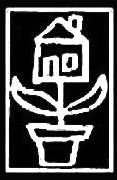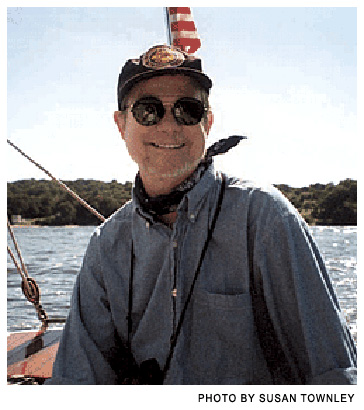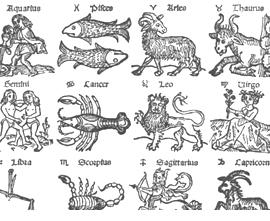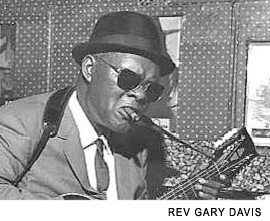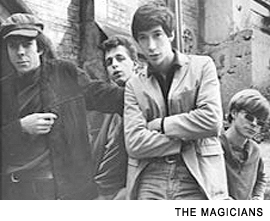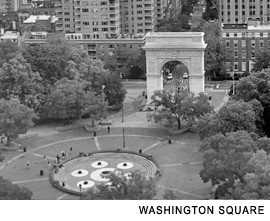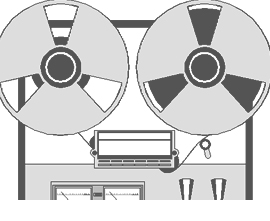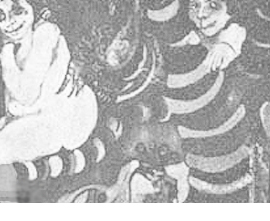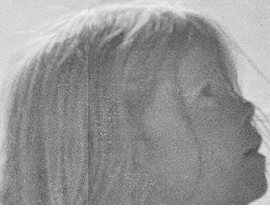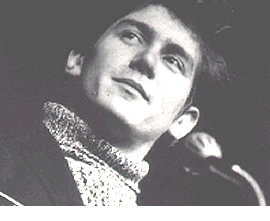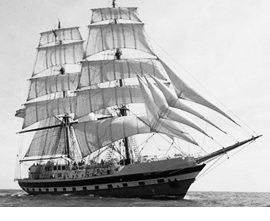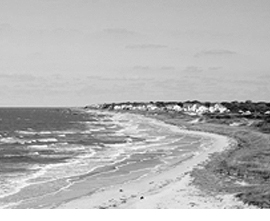Questions and Answers
with John Townley
INTRODUCTION BY KURT BENBENEK
About three years ago, I came across John Townley's name on the inner gatefold of a double album
from 1968 called The Family of Apostolic - an album I'd picked up at a second-hand store for only a dollar.
Townley had produced and played on the album...along with a hearty crew of friends and family.
I'd not previously heard of the album (let alone Townley) and began some basic internet research,
hoping to at least possibly (maybe) track down Townley and ask him some questions about the album
and perhaps ask if I could post the album on my website.
After a bit of online research, I came up with an email address for an astrologer named John Townley...
"Hmmm...well, maybe it's him...let's give it a shot!" I thought and sent him an email...not really expecting a reply.
Within a day (or less) I received an enthusiastic response from John confirming the fact that he was (indeed)
the John Townley who produced "The Family of Apostolic" album. He also gave me permission to post the album,
as long as I sent him a CD copy of it (he apparently didn't have a decent copy of the album)
A few emails were exchanged back and forth and soon I found out that John is not only a master astrologer
and a master music producer, but he also (almost-single-handedly) changed the face (and ears) of modern music recording
by designing and building his own multi-track recording studios (Apostolic) in NYC and San Francisco in the late '60s
Not only that, but John is a researcher and performer of sea songs - he's also a writer, a thinker and a family man and more.
Earlier in his musical life, John was a member of folk-rock band The Magicians (along with Garry Bonner, Alan Gordon
and Jake Jacobs) whose song "Invitation to Cry" later appeared on Lenny Kaye's classic 60's compilation album "Nuggets"
John and his wife Susan are the creators of AstroCocktail...a website devoted to astrological insight and psychic sensitivity,
Log on to check the monthly astro calendar, to download mp3 music or to simply be a part of the burgeoning astro-blogosphere!
I've been wanting to do a little Q & A with John for a while now and recently the time seemed very alright
and the questions I came up with seemed alright, too...so all systems are go...
Here's the HPS Q & A with John Townley - -
Where were you born? Where did you grow up?
Born in Washington, DC August 17, 1945, 1:51 AM EWT (rectified time), Walter Reed Army Hospital.
Dad was in Army at the time, living in Fairfax, VA. I don’t remember any of that.
Moved to Rancho Santa Fe, CA at age three, spent a couple of years there, which has some humorous memories.
One tale tells it all.
One of my playmates (a year older) was Chris Hillman (yes, later of the Byrds)
and I remember as TV was just out, he used to watch it all the time, even the cooking shows
(as my parents commented, who limited my exposure to a half hour at a time, including Beany and Space Patrol).
When it came time for me to start first grade, California had just started teaching reading
by the now-long-debunked “whole-word recognition system” (they held up a picture with a word under it,
you memorized both, no phonetics to speak of).
My parents, former owners of Manhattan’s Upper East Side Beekman Place Bookshop eyed it with suspicion,
and it escaped me entirely. Well, about three months into school, I was invited to Chris’s birthday party
and my mom gave him a present: a book called The White Rabbit with a big picture of same under the cover title.
(Looking back, even the prescient symbolism kills me.)
“You’ve been reading for a year,” said my mom when he opened it.
“What does that say over the picture?” she asked.
Clear as a bell, Chris replied, “The White Bunny!” My mother blanched…
Three weeks later, the house was sold and we were living on a boat in Port Lavaca, Texas.
And that’s where we stayed, for over two years sailing up and down the coast from the Bahamas to New England,
until I had been home-schooled in how to read, then settled ashore in Coconut Grove, FL.
How were you exposed to astrology and how did you become involved with it?
I got my first chart reading while running Apostolic Studios, from Al H. Morrison, one of the great astrologers of the mid-20th century.
One day, his lease uptown expired and he needed an office – I had space on my 6th floor at the studio building,
so I gave him space in return for doing readings for the studio clients – the Mothers, etc.
Having been on the tail of the generally ineffable for some time
(one of my DMT visions being about uniting science and religion),
astrology seemed the absolute right track to pursue.
What's your working definition of astrology?
The correlation of celestial, planetary patterns with patterns of events and behavior on earth.
They correlate often enough regarding personal styles, events, trends, and lots else to be way beyond chance,
but not enough to be simple clockwork machinery. There are more step-down processes (mostly gravitational)
between up there and down here than we know, so it needs a lot more study.
But it works well enough to work with, if you’re careful and skeptical. It’s like a lot of things in life we don’t know
and if asked to can’t prove, but rely on every day, like most complex biological processes, or language.
There’s a structure there that’s obvious to the organism, but insufficiently explored by the intellect.
Briefly describe how an astrological chart is organized and presented to a client...
It depends on what people come for. Some want insight into their own psychology and personal style,
in which case I’ll go over their natal charts (a map of the heavens at the exact time and place of birth),
describing where the planets, signs, houses, and aspects interrelate and how that’s
interpreted by traditional astrological rules.
Others are more event-oriented and want to know the best times to do things,
so I’ll pick times for them accordingly, depending upon the events or the other people involved.
The idea behind it all is twofold:
1) everything runs more or less in tandem, above and below and
2) when you start something (a birth or a timed event) the initial set of conditions
remains throughout the life of the system and unfolds in a regular and definable way.
Very simple, very physical, actually.
Yet, it covers the interactions of all systems, everywhere, whether biological or otherwise.
How do free will and chance enter into the realm of astrology?
It’s about weaving the two, as you define them and working with what you have available.
Obviously, going to an astrologer is an act of free will to get you a step more control
than you would have otherwise, like consulting a weather forecast before going on a trip.
So it’s the opposite of predestination, really. You find out what you can, and then you do what you can about it.
And chance, on the other hand, is a more personal definition, and much more troublesome, actually.
It’s really what you don’t have control over, where things don’t seem to have a pattern
because you can’t see it (not necessarily because it’s not there), and considering that
is most everything most of the time, it would be dreadfully scary if we didn’t know
that evolution had taken care of most of it, which is why we’re here to begin with.
We get a general idea of what’s happening (which right now we call science),
and do the rest on automatic. All one can say is, thank God for automatic…
What are some typical reactions from strangers when they find out you're an astrologer?
It depends on what they think an astrologer is. Extremely doctrinaire religious types
(Christian or Muslim, mainly) will think I’m in league with the Devil.
Textbook science types think I’m deluded because their quite-recent paradigm
is supposed to explain everything (except chance, which they created for the purpose)
and all other beliefs are incorrect.
Most people in the middle think there’s something to it,
maybe, whatever “it” is and think it’s interesting,
depending upon their actual familiarity with the subject.
What were your earliest musical influences?
For example, what was the first album you ever bought?
My parents had a lot of mixed 78s that included Leadbelly, Woody Guthrie,
John Jacob Niles, Marlene Dietrich, Maxine Sullivan, Noel Coward, and lots more.
My mom was also a classical pianist, loved folk music
(she was from Appalachia - Crozet, VA, right where the Waltons supposedly lived).
The first record I ever bought myself was Elvis Presley's Hound Dog/Don’t Be Cruel,
but my interest in pop music was cut short by being shipped off to prep school,
where radios were banned, and I mostly listened to tapes I brought from home –
Greek pop music, Indian and Chinese, various stuff
my parents collected while we were traveling.
But in the spring of 1960, I heard the first Joan Baez album and went nuts for folk.
Once I’d started to learn guitar, I found the Rev. Gary Davis and dropped out
of college to follow him to New York, where I took lessons and later
became his driver (when I ran out of money to pay for lessons).
I later produced his last album at Apostolic,
and I’m still one of the few in the world who
actually plays like he did, actually sounds like him.
From what I understand, you and Allan Jacobs joined The Magicians
as replacements for band members Mike Appel and Everett Jacobs...
Were you and Allan Jacobs a performing duo prior to joining The Magicians?
I don’t know about the original two we replaced. I was just walking down MacDougal St.
and ran into Jake whom I knew casually from the basket houses where I was trying to
make a living singing with various folks Peter Tork, David Blue, to name two I did duets with.
At the time it happened, I was doing my first electric trip -- a trio with fiddler Jay Ungar
and a Gypsy named Wayne who played electric paint can (like a mini-washtub bass),
calling ourselves the Psychedelic Rangers. Jake said there was a group with a single
on Columbia who needed fill-ins – he was one, would I like to be the other?
So we went into the studio (Regent Sound on 57th Street) and cut a B side,
basically just me and Jake, doing “The Rain Don’t Fall On Me No More,”
a Blind Willie Johnson tune I had learned from Geoff Muldaur
and arranged for open G tuning. It was my basket-house set favorite.
What were your musical aspirations immediately prior to joining The Magicians?
Playing the blues, old-time and rag combinations, seeing where music would take me in general.
Another major influence among contemporaries were the Holy Modal Rounders.
Steve Weber (of the Holy Modal Rounders) was my roommate for a year or so.
The Magicians are said to have taken over from
The Lovin' Spoonful at The Night Owl Club in Greenwich Village...
They sort of did, as the house pet band expected to follow in their footsteps
and keep the Night Owl on the map. Didn’t quite turn out that way, but it was a lot of fun…
Did you know John Sebastian and other members of The Spoonful?
Only in passing. They had mostly gone off on the road
and nobody saw them again except when accidental paths crossed.
What was your general involvement in the early 60s Greenwich Village music scene?
I remember arriving to investigate the folk revival scene for a senior project from prep school.
Watching the folksingers in Washington Square was utterly compelling, like a combination
of freedom and direction undreamed of, and in fact unreal both for them and myself,
but who lets that get in the way?
When I arrived in the Village as a new alternative to college
(where my folks had actually met and lived in the 1930s, so they supported it),
I was immediately robbed of all my instruments at the Hotel Earl,
but then found some temporary safe shelter with roommate folksinger
and Native American advocate Peter La Farge,
who like Phil Ochs went too far on pills,
so I had to move out during
one of his crazy moments.
Still, the opportunity to learn from Rev. Gary Davis eclipsed all else.
I eagerly explored the early music and drug culture and was totally astonished
to find that everybody in Coconut Grove had protected me from it when I was at home,
because they so respected my parents. I was suddenly turning on with everyone from
David Crosby to Fred Neil and Vince Martin who had literally defended me from it at home.
It was strange, delightful, and incredibly inspiring.
What I had speculated reading Huxley’s The Doors Of Perception became instantly at hand, and totally real.
On MacDougal Street, everyone mingled in a combination of awed mutual learning and hopeful competitiveness.
You had the feeling that the person you had just met and were performing with would be important (and maybe you, too)
before you knew it, because you were all on the same trail. There was a connection between relative oldsters
like Dave Van Ronk, Jack Elliott, and Pete Seeger with newbies like Dylan, Bill Cosby, and Phil Ochs
that centered right around the Gaslight Café, The Folklore Center,
and the Kettle of Fish bar all in the center of the block
between 3rd and 4th Street
Who else was playing at The Night Owl at that time?
The Strangers, The Blues Magoos, The Five of Us,
The Jagged Edge, Tim Hardin, The Fugitives, The Modern Folk Quartet…
The Magicians recorded for Columbia Records -
and apparently recording in Columbia's Studios was
less than an ideal experience for the group...
It wasn’t painful, because it was a new adventure, but it was limiting,
since you were so restricted by the technology, the lack of production control,
and the ambience.
It was OK if what you were doing was reproducing what you did live already,
but creating new stuff and overdubbing was harder.
How were The Magicians treated by Columbia management?
In other words, was the goal at that time to cut a smash hit
Magicians single as soon as possible?
We thought that was the goal, and so did our producers Bob Wylde and Art Polhemus,
who had done “Invitation To Cry” to begin with. But that was when Columbia’s management
changed (Clive Davis and…Bill Goddard) and the idea of the “shotgun” approach to singles releases was born.
Instead of aggressively promoting a single group, you put out ten singles in a given week
and counted that would so overwhelm the DJs that one of them would get picked for play.
The same principle as overwhelming the shelves with different kind of Cokes in the supermarket.
For us that meant that when another Columbia artist who already had a previous hit
put another single out the same week, they’d get chosen. Like, in our case, we got buried
by Bob Dylan, the Circle, and Simon and Garfunkel,
all part of the particular week’s Columbia shotgun blast.
Were basic artistic (or musical) concerns considered valid by Columbia?
And how did these early music experiences color your attitude later on?
Columbia cared about bottom line, and it pissed us off incredibly to be called “product” to our faces.
Reversing that trend was part of what Apostolic and the independent label movement was about.
How large was The Magician's fan-base and where else did you play...and with whom?
Large, but not that large. We had them mainly where we returned to play,
like Cleveland five times for the syndicated TV show Upbeat.
But they were useful later, as they provided the teen PR leaders
I set up for Apostolic when its Vanguard/Apostolic came out in Cleveland,
Chicago, Detroit, St. Louis, Los Angeles, Boston, and San Francisco.
That was because I didn’t trust Vanguard to promote anything.
Turned out I was right, Cleveland broke “Witchi-Tai-To” and
I later married my Cleveland rep, which lasted 26 years.
How did the short CBS TV documentary "Eye on New York" (featuring The Magicians) come about?
I really have no idea. It was just after CBS bought Columbia and Fender and was part of
a locally easy-to-do documentary because we were within subway distance from Blackrock.
How did you make the leap from folk-rock musician
to owner and operator of a large recording studio?
Inherited $85,000 from my great aunt Louise on my 21st birthday, and like a fool,
sunk it all into the idea that you needed more tracks and a cool place to use them.
Didn’t really think twice about exactly how to do it, relied on the necessities to come later, which they sort of did…
How long did this idea gestate and who assisted you in getting the studio off the ground?
I was thinking about it after the first few sessions at Columbia, that there could be a better way.
Once I had the money (and quit the Magicians to allegedly “save my marriage”
which was doomed but really to build the studio), I found hi-fi writer Ivan Berger,
whom I had met through Ana Perez, Lower East Side cousin of Jose Feliciano
(met him in her tiny little apartment, well before he arrived on the scene.
He was so utterly motivated, in such a strange, claustrophobic atmosphere)
who lent me a couple of microphones and turned me on to Lou Lindauer,
who not only designed and built the board,
but found all the equipment, taught me
and everybody else everything
from carpentry to wiring to build it.
After you chose the space, how long was it before
the first recording was done at Apostolic? What sort
of preparations had to be done?
I did the first two-track recordings in the vacant loft space in the winter of ’67
and by the next fall we were open with 12-track and all, though not finished.
The basic, run-down artist’s loft had to be completely redone
(restored, actually, down to the original wood wherever possible),
all wiring, walls and insulation, lighting, you name it.
Hired all my friends, they hired theirs.
Took in my roommate from The Hill School and Tufts
as partner to do the business part,
then two more when money ran out.
Was Apostolic immediately successful?
Virtually overnight, mainly because it was so unique.
It only died of overexpansion, really.
I have a habit of starting things and then moving on
to the next new calling and leaving the last to others,
which can be a disaster.
Since you were introducing a new studio approach with
Apostolic, did you have to deal with unpleasant old school union
politics? Were you ever hassled by unions or by other studios
or by other music producers? (or by anybody for that matter...)
Not at all, mainly because we were downtown and not allied with major labels
who had to be union across the board. Really, nobody cared anyway,
because no one believed a downtown studio outside of
the music biz area could succeed – and then when it did,
we were immediately followed by Record Plant,
Hendrix, and suddenly it was as if
it had always been that way…
Apostolic was the studio home to a large array of music acts.
How intimately involved were you with booking acts into the studio?
My partners were, I was not at all.
All I did was get in the way by wanting to do my own stuff.
How extensive was the studio staff?
Let’s see, four partners, receptionist, five or six engineers,
PR person, elevator operator (it was manual), and other occasional
general assistance here and there. Not including the PR network for the Apostolic label.
Did you sometimes supervise the recording of acts yourself?
Would acts bring in their own engineers? Were you generally always "on site"?
I was always there at the beginning, but by the end I was only there to record.
Spent time on the road setting up promotion. Whoever was the producer
of any given album supervised the recordings.
Engineers other than the ones we provided were rarely, if ever,
brought in, mainly because it was unnecessary and not very cost-efficient.
What are some of your fondest memories at Apostolic?
Just planting myself regularly in a space where I could turn around
and pick up the best instrument of any kind I was moved to play,
however obscure, and roll the tape – regardless of the time
or headframe I was in. The dream, come true.
Least fond?
When the dream was interrupted, by reason of neighbors who complained
about midnight sessions, or when I ran aground on something more than I could handle.
I was construction boss at the beginning, for instance,
until I realized that one of the carpenters I had hired and
desperately needed for the job was too stoned to function...all the time.
So I took in my roommate Matt Hoffman, who fired him.
Awful, and not what I had signed on for…am still that way.
Artist Nicky Osborn painted psychedelic murals
in the six-story elevator of Apostolic Studios.
Describe how the murals were painted...
The elevator was a frame-only freight devise, where you
pulled on a stationary cable to start it, stop it, or reverse direction.
So, Nicky went slowly up the six-story shaft and painted day-glo blacklight murals the entire length.
Then, everyone who got in at the ground floor was in for an outrageous trip.
Since we only occupied two of the six floors,
you wonder at the tolerance of the neighbors,
which was considerable.
What was Nicky Osborn's background?
Wealthy Connecticut WASP. Amazing in the Viking costume
long hair, and beard he subsequently ran the elevator in.
People would come to the studio just for the ride.
What circumstances led to the recording of the "Family of Apostolic" album?
Nothing special, or intentional, really.
Just what I was doing with wife Gilma
and my other musical friends
and family at the time,
hence the name.
Was it the first full album recorded at Apostolic Studios?
How many copies were pressed and where (and how) was it distributed?
It was a hodge-podge, and a number of others in the first release cycle at Vanguard/Apostolic
were all recorded betwixt and between each other in ’67-68.
I have no idea how many Vanguard Records pressed. They were the distributor.
Roughly, how many albums were recorded at Apostolic before it was sold?
Dozens and dozens by people who used the studio like Zappa, etc.,
maybe hundreds, but only a handful on the Vanguard/Apostolic label.
Where did all the recording hardware
in Apostolic (consoles, etc) eventually end up?
God only knows. Same for some of the masters that disappeared
in the final days, like a whole album full of Rev. Gary Davis secular songs.
It got quite chaotic in the end, as the finances collapsed and the rats left the ship.
You were friends with singer/songwriter Phil Ochs,
how did that friendship come about? And were you in
contact with him during his final years?
Phil recorded his first demos on my father’s Sony home tape recorder at our house in Coconut Grove,
which was a center for the early folk scene. Gilma and I were witnesses at his marriage to Alice.
After that, we rather lost touch.
Did Ochs ever record at Apostolic?
No.
When did your interest in sea songs develop...both as a player and as an investigator?
Although I was interested from childhood (living on a sailboat) and from general folk music,
I got focused specifically during the early 1970s when I began to go down
to South Street Seaport to sing with some folks aboard the ships there,
a group that congealed into the X Seaman’s Institute,
which I produced for Folkways.
As sea music became more popular, I also produced "The Starboard List" for Adelphi Records,
which included an old friend from Apostolic days Charles O’Hegarty,
plus a number of sea festival albums for Folkways.
My interest was always to find out what was actually being sung aboard ship historically,
not necessarily what was believed to have been or ought to have been.
This led me to discovering the considerable impact of popular music, parlor music, and religious music aboard ship,
something I did several papers for Mystic Seaport about. Another one of those things that is obvious now
but was in fact largely denied by folk experts previously who had decided that sailor’s music was strictly proletarian –
I love lefty folkies as much as anybody, but sailors in fact knew no politics.
Then, when I moved to Virginia, I did a whole lot of local research there when I was developer for The Mariners’ Museum in Newport News,
who funded Chesapeake Sailor’s Companion: Four Centuries of Maritime Music on the Chesapeake Bay.
Describe a few of your experiences on tall ships...where have your sea journeys taken you?
So far, I’ve come a few inches from death three times in the exact same spot
off Cape May, New Jersey, in both tall ships and brand new, as a child and as an adult –
the place must have it in for me – but they say those who are born to hang can’t drown.
I’ve performed on ships all over the U.S. and Europe, especially Poland,
which has a completely fun and crazy generation-long sea music romance going.
Probably the most exciting and fun voyage was definitely aboard the Polish tall ship Zawisza Czarny in 1992,
the journal and pix of which are available here along with the crew album we recorded when we popped into
a friend’s studio in Wallasey, across the Mersey from Liverpool.
You take part in many (seemingly) diverse activities - if you could delineate
a common thread among your vocations and avocations, what would that
common thread be?
That it’s all of a piece, but it comes in pieces, with all the threads weaving together, so you take one after the other.
Every now and then, you get a glimpse of the whole thing, which is what started me on Apostolic and has sustained me ever since.
END
Q & A conducted via email
during the week of May 14, 2007
RELATED LINKS
John and Susan Townley's AstroCocktail
The Best of The Magicians
The Story of Apostolic Studios
The Family of Apostolic - 22-track album download
Reverend Gary Davis
